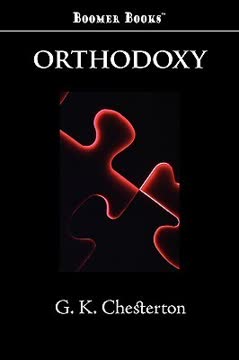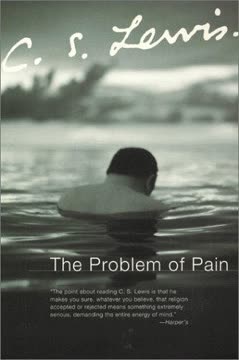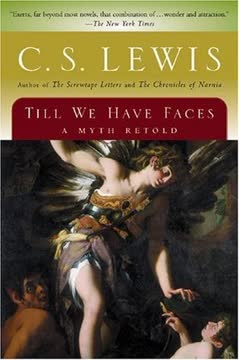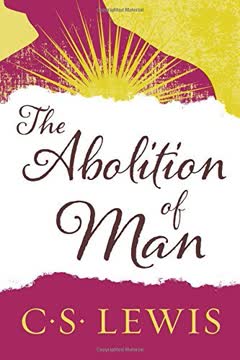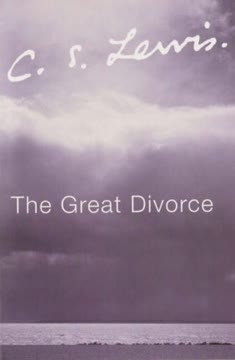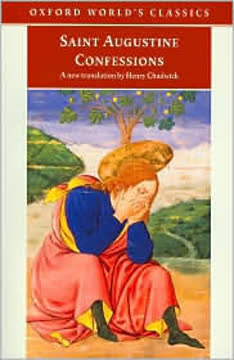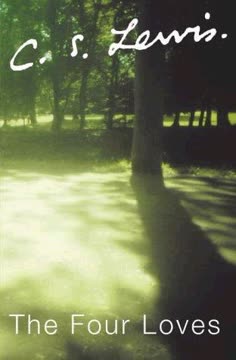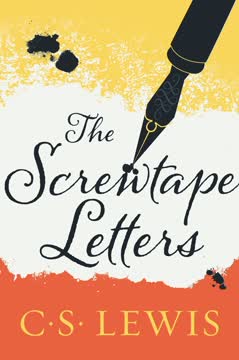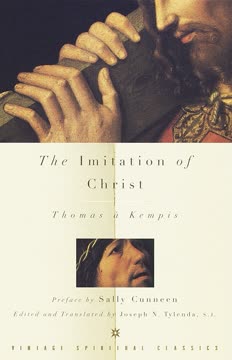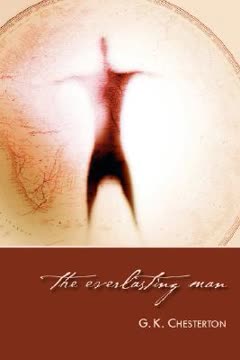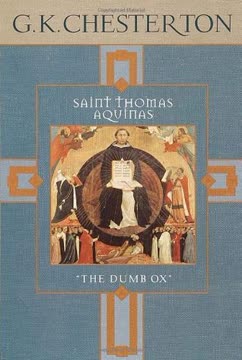Key Takeaways
1. Reason Alone Leads to Madness, Not Sanity
The madman is the man who has lost everything except his reason.
Logic without limits. Pure reason, unchecked by imagination or common sense, can lead to insanity. The lunatic is often intensely logical within a narrow, self-contained system, connecting everything in a rigid, elaborate map that excludes the broader, messy reality.
Poets stay sane. Imagination, unlike reason, floats in an infinite sea and seeks expansion, while reason attempts to cross and make the infinite finite, leading to mental exhaustion.
- Poets are typically sane and practical.
- Mathematicians and logicians are more prone to madness.
- Cowper, the only great English poet who went mad, was driven by the logic of predestination, not poetry.
Sanity's balance. Sanity requires a balance of apparent contradictions, a stereoscopic spiritual sight that accepts mystery. Mysticism, by allowing one thing to be mysterious, makes everything else lucid, whereas excessive logic makes everything mysterious.
2. Modern Thought Commits Suicide by Doubting Reason Itself
There is a thought that stops thought. That is the only thought that ought to be stopped.
Undermining the mind. Modern philosophies, like materialism or extreme skepticism, often end up destroying the very possibility of thought. If the mind is merely mechanical, thought is unexciting; if the cosmos is unreal, there's nothing to think about.
Skepticism's end. Complete skepticism leads to doubting the validity of thought itself. The young skeptic questions everything, but the old skeptic questions his right to think at all.
- Evolution, if it denies the existence of distinct "things," makes thought impossible.
- Extreme uniqueness theories ("all chairs are different") contradict the basis of language and connection.
- Pragmatism, taken to an extreme, denies objective truth, yet belief in objective truth is a human need.
Free thought's bankruptcy. Free thought, in its extreme form, has exhausted itself by questioning its own foundations. It has no more questions to ask because it has questioned questioning itself.
3. Tradition is Democracy Extended Through Time
Tradition means giving votes to the most obscure of all classes, our ancestors.
Trusting the common voice. Democracy trusts the consensus of living common people. Tradition extends this trust to the common people of the past, giving weight to their accumulated wisdom and experience over the isolated views of contemporary experts or minorities.
Democracy of the dead. Just as democrats object to disqualifying people by birth, tradition objects to disqualifying them by death. Our ancestors, though dead, are part of the human community whose collective judgment should be considered.
- Legends, made by the sane majority of a village, are often more reliable than history books written by potentially eccentric individuals.
- Disregarding tradition based on past ignorance is like disregarding slum voters based on present ignorance.
Rooted in the nursery. The author's earliest and most enduring philosophy, learned from nurses, was rooted in this democratic tradition, trusting the wisdom passed down through generations of ordinary people.
4. Fairy Tales Reveal Fundamental Truths About Reality
Fairyland is nothing but the sunny country of common sense.
Magic is rational. Fairy tales, with their arbitrary magic and conditional happiness, reflect a deeper truth about the world than scientific "laws." They capture the wonder and mystery of existence, acknowledging that things happen not out of necessity, but as if by enchantment or will.
Wonder at the ordinary. Fairy tales refresh our sense of astonishment at everyday things, reminding us that apples are green not because they must be, but because they are, and they could have been scarlet.
- The "laws of nature" are merely observed repetitions, not logical necessities.
- We bet on nature's regularity; we don't know its underlying formula.
- Terms like "charm," "spell," and "enchantment" better describe nature's arbitrary facts than "law" or "necessity."
Life's pleasant surprise. This perspective, learned from fairy tales, instilled a sense that existence was a surprising and precious gift, a delightful adventure, fostering a feeling of gratitude for being alive.
5. Life is a Precious, Conditional Gift, Not an Inevitable Process
I felt and feel that life itself is as bright as the diamond, but as brittle as the window-pane; and when the heavens were compared to the terrible crystal I can remember a shudder.
Happiness hangs on a veto. Fairy tales teach the "Doctrine of Conditional Joy": immense happiness depends on adhering to a seemingly arbitrary condition or veto. Breaking the rule, no matter how small or inexplicable, can shatter the entire vision.
Existence is eccentric. This conditional nature of happiness felt just, given the eccentric legacy of existence itself. Complaining about restrictions on sex or marriage felt like complaining about only being born once – disproportionate to the miracle of the gift.
- Monogamy is a small price for the wonder of seeing one woman.
- True appreciation of beauty requires symbolic sacrifice or payment.
- Oscar Wilde was wrong; we can pay for sunsets by not being like him.
Saved from a wreck. The world felt like a collection of precious things saved from a primordial ruin, like Crusoe's goods from the wreck. This perspective fostered a sacred thrift and appreciation for the limited, definite things in the cosmos, seeing them as miraculous remnants rather than inevitable outcomes.
6. True Reform Requires Arbitrary Love and Cosmic Patriotism
The only way out of it seems to be for somebody to love Pimlico: to love it with a transcendental tie and without any earthly reason.
Loyalty precedes admiration. Our attitude towards life should be one of primary loyalty, like patriotism, rather than mere critical approval or disapproval. We belong to the world before we judge it.
Love creates value. Just as cities grew great because people loved them arbitrarily, not because they were already great, we must love the world without earthly reason to transform it.
- Decoration is for things already adorable, not to hide ugliness.
- Morality began by guarding sacred places, not conscious exchange of interests.
- The Ten Commandments were military orders to protect a holy ark.
Irrational optimism reforms. Bad optimism whitewashes the world; rational optimism leads to stagnation. Only irrational optimism, rooted in a transcendental loyalty, provides the fierce love needed to reform the world drastically, like a patriot improving their nation.
7. Christianity's Paradoxes Reflect the Complex Truth of Existence
whenever we feel there is something odd in Christian theology, we shall generally find that there is something odd in the truth.
Fitting the hidden irregularities. Christianity's doctrines, though seemingly contradictory (like a man having two arms but only one heart), often fit the subtle, illogical truths and hidden complexities of reality better than simple rational explanations.
Critics contradict themselves. The multitude of contradictory attacks on Christianity (too pessimistic/optimistic, too meek/warlike, too ascetic/pompous, enemy/refuge of women) suggests that the faith itself occupies a central, balanced position that makes it appear extreme from various unbalanced viewpoints.
- Christianity was accused of preventing joy in nature and comforting men with fictitious providence.
- It was blamed for meekness and for causing wars.
- It was criticized for being the light of one people and for morality changing across ages.
A unique shape. These conflicting charges point not to Christianity's corruption, but to its unique, paradoxical nature. It is not merely sensible or temperate; it combines furious opposites, like the martyr and the suicide, in a way that reflects the complex, often contradictory, demands of human nature and reality.
8. Orthodoxy is the Adventurous Balance Between Extremes
There never was anything so perilous or so exciting as orthodoxy.
Sanity is dramatic. Orthodoxy is not dull or safe; it is the dynamic equilibrium of sanity, balancing powerful, potentially destructive ideas. It is the difficult path between easy extremes, like a man balancing between madly rushing horses.
Avoiding the traps. The Church navigated history by swerving precisely to avoid heresies that represented unbalanced exaggerations of single truths.
- It avoided Arianism (making Christianity too worldly) and Orientalism (making it too unworldly).
- It avoided the bottomless pit of predestination.
- It avoided Gnosticism, Christian Science, and other fads.
Keeping colors pure. Christianity keeps seemingly inconsistent things side-by-side, like celibacy and the family, or fierceness and meekness, allowing them to exist in their full strength rather than diluting them into a weak compromise. It prefers pure colors, like red and white, to muddy pink.
9. Progress Demands a Fixed Ideal, Not a Changing Vision
Progress should mean that we are always changing the world to suit the vision. Progress does mean (just now) that we are always changing the vision.
Changing the target. Modern "progress" is often futile because the ideal towards which it strives is constantly changing. Instead of altering the world to match a fixed vision, we alter the vision, making genuine, cumulative reform impossible.
Fixed vision is necessary. A permanent, fixed ideal is essential for any meaningful action, whether conservative or revolutionary. One can only act swiftly and decisively for something old and established in the mind.
- If the ideal changes, past efforts are wasted, like a painter changing his favorite color daily.
- The rapid fading of beliefs in the modern age leads to institutional stagnation.
- Free thought, by constantly shifting ideals, safeguards against actual freedom and change.
Composite and watchful. The ideal must also be composite, a definite picture of many qualities in proportion, not a simple trend. Furthermore, it requires constant vigilance, acknowledging that human institutions naturally decay and turn oppressive, necessitating perpetual revolution or restoration against novelty.
10. Original Sin is the Foundation of True Democracy
Only the Christian Church can offer any rational objection to a complete confidence in the rich.
Backsliders by nature. The doctrine of Original Sin, which states that men are naturally prone to corruption, is the only logical basis for distrusting power and advocating for democracy. It provides a reason for constant vigilance against the abuse of privilege.
Distrusting the comfortable. Christianity uniquely warns that the most dangerous environment is the commodious one, making the rich particularly susceptible to moral decay.
- The modern world trusts the rich because it doesn't account for human weakness.
- The rich man is often already bribed by his wealth and comfort.
- History shows that men in power, regardless of rank, are capable of corruption (Bacon, Marlborough).
Carlyle's error. The Christian view opposes Carlyle's idea that the man who feels he can rule should rule. Instead, it suggests the man who feels unfit should rule ("Nolo episcopari"). Voting is Christian in its attempt to seek the opinion of the humble and modest.
11. Transcendence Drives Action; Immanence Leads to Stagnation
By insisting specially on the transcendence of God we get wonder, curiosity, moral and political adventure, righteous indignation—Christendom.
God outside the box. Christianity's insistence on a transcendent God, separate from the cosmos (like an artist from their work), provides the necessary external point of reference for wonder, criticism, and action.
Pantheism's paralysis. Pantheism or immanentism, which sees God as identical with the universe or the self, leads to introspection, quietism, and social indifference because there is no external standard to judge or strive towards.
- Buddhism, aligned with modern pantheism, results in saints with eyes shut, looking inward.
- Christianity results in saints with eyes open, staring outwards in astonishment at a distinct reality.
- Swinburne's pantheistic god ("I am I, thou art thou") implies tyrants are as divine as liberators, leading to inaction.
Hunting God like an eagle. Western energy and reform stem from the Christian idea of pursuing a transcendent God, which fosters external vigilance and the drive to challenge and change the world.
12. The Incarnation Reveals God as Both King and Rebel
Christianity alone has felt that God, to be wholly God, must have been a rebel as well as a king.
Omnipotence made complete. The doctrine of the Incarnation, that God became man and experienced human limitations and suffering, adds courage to the divine virtues. It suggests that God himself passed through a breaking point and did not break.
God tempted God. The agony in Gethsemane and the cry from the cross ("My God, my God, why hast thou forsaken me?") suggest that God experienced the human horror of pessimism and doubt, even seeming for an instant to be an atheist.
A god in revolt. This makes Christianity unique among religions. Revolutionaries seeking a god who understands isolation and revolt will find only one divinity who has uttered their cry, one religion where God seemed for an instant to be forsaken by God.
Last updated:
FAQ
1. What is "Orthodoxy" by G.K. Chesterton about?
- Chesterton’s spiritual autobiography: The book is Chesterton’s account of how he personally came to believe in Christian orthodoxy, especially as summarized in the Apostles’ Creed.
- Defense of Christian faith: It is both a critique of modern philosophies and a positive argument for the intellectual and imaginative appeal of traditional Christianity.
- Exploration of paradox: Chesterton explores the paradoxes at the heart of Christianity, arguing that its apparent contradictions are actually signs of its truth and vitality.
- Response to critics: The book was written as a response to critics of his earlier work "Heretics," who challenged him to present his own positive philosophy.
2. Why should I read "Orthodoxy" by G.K. Chesterton?
- Engaging and witty prose: Chesterton’s writing is lively, humorous, and full of memorable analogies and paradoxes.
- Insight into faith and reason: The book offers a unique perspective on the relationship between faith, reason, and imagination, challenging both skeptics and believers.
- Cultural and philosophical critique: "Orthodoxy" provides a sharp critique of early 20th-century secularism, materialism, and relativism, many of which remain relevant today.
- Foundational Christian apologetics: It is considered a classic of Christian apologetics, influencing many later thinkers and writers.
3. What are the key takeaways from "Orthodoxy" by G.K. Chesterton?
- Paradox is central: Chesterton argues that Christianity’s strength lies in its ability to hold together seemingly contradictory truths, such as joy and sorrow, humility and pride.
- Reason and imagination: He contends that reason alone leads to madness, while imagination and mystery are essential for sanity and a full human life.
- The romance of orthodoxy: Chesterton presents Christian orthodoxy as a thrilling adventure, not a dull or restrictive system.
- Critique of modernity: He critiques modern philosophies for their narrowness, self-destruction, and inability to inspire or sustain real moral or social reform.
4. How does Chesterton define "orthodoxy" in "Orthodoxy"?
- Apostles’ Creed as standard: For Chesterton, "orthodoxy" means the central Christian theology as summarized in the Apostles’ Creed, accepted by most Christians until recent times.
- Not mere tradition: He sees orthodoxy not as blind tradition, but as a living, dynamic, and rational faith that answers the deepest needs of humanity.
- Paradoxical balance: Orthodoxy is defined by its ability to balance extremes—reason and mystery, optimism and pessimism, individualism and community.
- Root of energy and ethics: Chesterton claims that orthodoxy is the best foundation for personal vitality and sound social ethics.
5. What is Chesterton’s critique of modern philosophies in "Orthodoxy"?
- Materialism and determinism: He argues that materialist and deterministic philosophies are narrow, self-defeating, and ultimately dehumanizing.
- The "maniac" of reason: Chesterton claims that pure reason, when detached from mystery and imagination, leads to madness and spiritual suffocation.
- Suicidal thought: He warns that unchecked skepticism and relativism destroy the very foundations of thought and morality.
- Loss of wonder: Modern philosophies, in Chesterton’s view, rob the world of its sense of wonder, adventure, and romance.
6. How does Chesterton use the concept of paradox in "Orthodoxy"?
- Christianity’s paradoxes: He highlights how Christianity uniquely combines opposites—such as being both fiercely optimistic and pessimistic, or advocating both humility and heroism.
- Paradox as sanity: Chesterton argues that the ability to hold paradox is a sign of sanity and health, while the refusal to do so leads to madness.
- Examples in ethics: He shows how Christian virtues like courage, charity, and humility are all paradoxical in nature.
- Paradox as adventure: For Chesterton, the paradoxes of Christianity make it an exciting and adventurous faith, not a dull or safe one.
7. What is the significance of "The Ethics of Elfland" chapter in "Orthodoxy"?
- Fairy tales as philosophy: Chesterton uses fairy tales to illustrate the sense of wonder, gratitude, and conditional joy that he believes is at the heart of Christian faith.
- Laws as magical: He argues that the laws of nature are not necessary or rational in themselves, but are more like magical rules in a fairy tale—arbitrary, wonderful, and contingent.
- Conditional joy: The idea that joy is always conditional, dependent on obeying certain mysterious rules, mirrors the moral structure of Christianity.
- Critique of scientific fatalism: Chesterton contrasts the imaginative openness of fairy tales with the closed, deterministic worldview of modern science.
8. How does Chesterton address the relationship between reason and imagination in "Orthodoxy"?
- Imagination keeps us sane: He claims that imagination and mystery are essential for mental health, while pure reason alone leads to madness.
- Poets vs. logicians: Chesterton observes that poets and creative people rarely go mad, while those obsessed with logic and system often do.
- Acceptance vs. understanding: He suggests that accepting the world as mysterious is healthier than trying to make everything completely rational and comprehensible.
- Faith as imaginative: Chesterton sees Christian faith as fundamentally imaginative, allowing for both wonder and rationality.
9. What does Chesterton mean by "the romance of orthodoxy" in "Orthodoxy"?
- Adventure of faith: He presents Christian orthodoxy as a grand adventure, full of risk, excitement, and the unexpected.
- Balance of extremes: The "romance" comes from Christianity’s ability to balance and even intensify opposing passions and virtues.
- Not safe or dull: Chesterton insists that orthodoxy is not a safe, humdrum refuge, but a perilous and exhilarating path.
- Living tradition: The romance lies in the ongoing, living nature of the faith, which continues to surprise and challenge its adherents.
10. How does Chesterton argue for the necessity of dogma and authority in "Orthodoxy"?
- Dogma as liberation: He claims that clear dogmas and rules are necessary for true freedom, creativity, and even rebellion.
- Authority as adventure: Chesterton likens living under the authority of the Church to living in a world full of meaning and adventure, like a child in a garden.
- Protection against tyranny: He argues that fixed rules protect the weak and prevent the drift toward the tyranny of the powerful or the fashionable.
- Living teacher: Chesterton sees the Church as a living authority that continues to teach and surprise, not a dead or static institution.
11. What are some of the most important concepts and definitions in "Orthodoxy" by G.K. Chesterton?
- The Maniac: The person who relies solely on reason, losing touch with mystery and imagination, and thus becoming spiritually and mentally unhealthy.
- The Suicide of Thought: The process by which unchecked skepticism and relativism destroy the very possibility of rational thought.
- The Ethics of Elfland: The idea that the world is magical, contingent, and full of wonder, rather than rationally necessary or predictable.
- The Paradoxes of Christianity: The claim that Christianity uniquely balances and intensifies opposing truths, making it both sane and adventurous.
- The Eternal Revolution: The need for a fixed ideal and constant vigilance, rooted in the doctrine of original sin and the possibility of moral decay.
12. What are the best quotes from "Orthodoxy" by G.K. Chesterton and what do they mean?
- "Poets do not go mad; but chess-players do." — Emphasizes the danger of pure reason without imagination.
- "The Christian ideal has not been tried and found wanting. It has been found difficult; and left untried." — Suggests that Christianity’s challenge is not its failure, but people’s reluctance to fully embrace it.
- "Mysticism keeps men sane. As long as you have mystery you have health; when you destroy mystery you create morbidity." — Argues for the necessity of mystery and wonder in life and faith.
- "Joy, which was the small publicity of the pagan, is the gigantic secret of the Christian." — Highlights the centrality of joy in Christianity, in contrast to the despair of paganism or modern skepticism.
- "There are an infinity of angles at which one falls, only one at which one stands." — Illustrates the precarious balance of truth and the many ways to err, but the singularity of true orthodoxy.
Review Summary
Orthodoxy is widely praised as a brilliant defense of Christianity, particularly Catholicism. Readers appreciate Chesterton's wit, paradoxes, and ability to address complex philosophical ideas with clarity and humor. Many find the book deeply impactful, describing it as life-changing and faith-affirming. Critics admire Chesterton's insights on topics like wonder, reason, and modern philosophies. Some readers note the density of ideas requires careful reading, while a few find his arguments unconvincing or his style frustrating. Overall, most reviewers consider it a classic of Christian apologetics.
Similar Books
Download PDF
Download EPUB
.epub digital book format is ideal for reading ebooks on phones, tablets, and e-readers.
